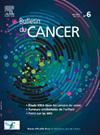Effets indésirables cardiovasculaires sous inhibiteurs de la Bruton tyrosine kinase : mécanismes physiopathologiques, dépistage et prise en charge
IF 1.1
4区 医学
Q4 ONCOLOGY
引用次数: 0
Abstract
Les inhibiteurs covalents de la Bruton tyrosine kinase (iBTK) ont profondément transformé la prise en charge des hémopathies lymphoïdes B, en particulier la leucémie lymphoïde chronique. Ces thérapies ciblées, dont l’ibrutinib est le pionnier, ont ouvert la voie à une amélioration significative du pronostic de nombreux patients. Avec les iBTK de seconde génération, tels que l’acalabrutinib et le zanubrutinib, la palette thérapeutique s’est élargie, présentant de potentielles nouvelles options pour les patients atteints de leucémie lymphoïde chronique. Cet article de synthèse se concentre sur les effets indésirables cardiovasculaires associés à ces traitements. Il explore en détail les mécanismes physiopathologiques sous-jacents à ces effets, mettant en lumière les interactions complexes entre ces molécules et le système cardiovasculaire. En outre, il examine la fréquence des effets indésirables selon le type d’iBTK, en s’appuyant sur des données issues d’études cliniques et de la pratique clinique réelle. Enfin, l’importance d’une surveillance cardio-oncologique étroite est soulignée, avec une collaboration essentielle entre hématologues et cardiologues. Des stratégies de dépistage et de prise en charge des effets indésirables cardiovasculaires sont également discutées, mettant en avant la nécessité d’une approche proactive dans la gestion de ces complications. Les experts proposent un suivi pragmatique de ces patients, à travers des figures récapitulatives, adaptées des recommandations européennes de cardio-oncologie, pour simplifier la pratique des hématologues.
The covalent Bruton tyrosine kinase inhibitors (iBTKs) have profoundly transformed the management of B-cell lymphoid malignancies, particularly chronic lymphocytic leukemia (CLL). These targeted therapies, with ibrutinib as the pioneer, have paved the way for significant improvement in the prognosis of many patients. With second-generation iBTKs such as acalabrutinib and zanubrutinib, the therapeutic landscape has expanded, offering potential new options for patients with CLL. This review focuses on the cardiovascular adverse effects associated with these treatments. It delves into the underlying pathophysiological mechanisms of these effects, highlighting the complex interactions between these molecules and the cardiovascular system. Additionally, it examines the frequency of adverse effects according to the type of iBTK, drawing on data from clinical trials and real-world clinical practice. Finally, the importance of close cardio-oncological monitoring is emphasized, with essential collaboration between hematologists and cardiologists. Strategies for screening and managing cardiovascular adverse effects are also discussed, emphasizing the need for a proactive approach in managing these complications. Experts propose a pragmatic follow-up of these patients, through a central illustration and a figure adapted from European cardio-oncology guidelines, to simplify hematologists’ practice.
[布鲁顿酪氨酸激酶抑制剂对心血管的不良影响:病理生理机制、筛查和管理]。
共价布鲁顿酪氨酸激酶抑制剂(iBTKs)深刻地改变了B细胞淋巴恶性肿瘤,尤其是慢性淋巴细胞白血病(CLL)的治疗。以伊布替尼为先驱的这些靶向疗法为显著改善许多患者的预后铺平了道路。随着阿卡布替尼和扎努布替尼等第二代 iBTKs 的问世,治疗范围不断扩大,为 CLL 患者提供了潜在的新选择。本综述重点关注与这些治疗相关的心血管不良反应。它深入探讨了这些不良反应的潜在病理生理机制,强调了这些分子与心血管系统之间复杂的相互作用。此外,它还根据临床试验和实际临床实践的数据,研究了不同类型 iBTK 的不良反应频率。最后,还强调了密切监测心血管肿瘤的重要性,以及血液科医生和心脏病医生之间的重要合作。专家们还讨论了筛查和管理心血管不良反应的策略,强调需要积极主动地管理这些并发症。专家们通过一个中心插图和一个改编自欧洲心血管肿瘤指南的图表,提出了对这些患者进行务实随访的建议,以简化血液科医生的实践。
本文章由计算机程序翻译,如有差异,请以英文原文为准。
求助全文
约1分钟内获得全文
求助全文
来源期刊

Bulletin Du Cancer
医学-肿瘤学
CiteScore
1.90
自引率
16.70%
发文量
224
审稿时长
37 days
期刊介绍:
Without doubt, the ''Bulletin du Cancer'' is the French language publication of reference in the field of cancerology. Official organ of the French Society of Cancer, this journal covers all the information available, whether in the form of original articles or review articles, but also clinical cases and letters to the editor, including various disciplines as onco-hematology, solids tumors, medical oncology, pharmacology, epidemiology, biology as well as fundamental research in cancerology. The journal proposes a clinical and therapeutic approach of high scientific standard and regular updates in knowledge are thus made possible. Articles can be submitted in French or English.
 求助内容:
求助内容: 应助结果提醒方式:
应助结果提醒方式:


